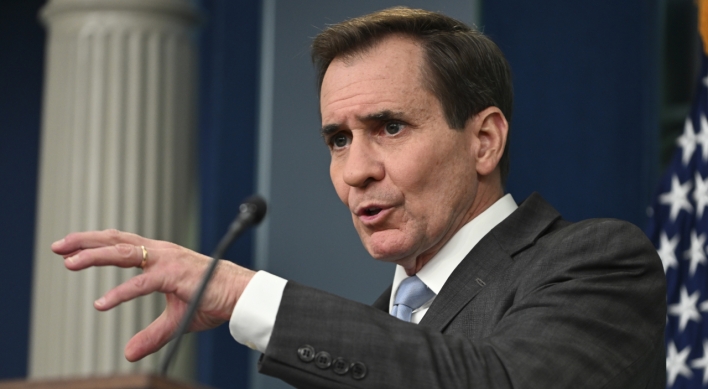WTO chief rules out another delay of S. Korea's rice market opening without cost
By 옥현주Published : July 10, 2014 - 09:47
South Korea will have to make compensation to other member nations should it decide to again delay opening its rice market, head of the world trade negotiation body said, as the country nears a deadline to make a decision on one of the most sensitive domestic issues.
In a written interview Monday with Yonhap News Agency in Geneva, Director General Robert Azevedo of the World Trade Organization (WTO) said South Korea, pursuant to an earlier agreement, will be required to liberalize its rice market at the beginning of next year.
"Any other option would inevitably require negotiations with (WTO) members. These negotiations typically involve the timing of tarrification and compensation to interested members," he said.
Tarrification refers to an effort to convert all existing agricultural non-tariff barriers to trade, or NTBs, into bound tariffs and to reduce these tariffs over time.
South Korea was allowed to postpone its rice market opening for 10 years from 1994 under the Annex 5 of the Agreement on Agriculture. The agreement was extended for another 10 years in
2004 in exchange for increasing the country's mandatory rice imports by 20,000 tons per year.
The country's mandatory rice import quota under what is called the minimum market access reached 408,000 tons this year.
Local farmers, already reeling from free trade agreements that opened the country's agricultural market to cheaper foreign imports, fiercely oppose conceding the rice market. Some argue that South Korea can and should seek another waiver on market opening.
Azevedo dismissed such claim, saying that Annex 5 of the Agreement on Agriculture allows only one-time extension of the special treatment initially offered at the end of the Uruguay round of negotiations in 1993.
"Korea took advantage of this provision and got an extension of the special treatment by an additional 10 years. That extended period comes to an end in 2014. There is no provision for future extension of this special treatment," he said.
Another option for South Korea would be to seek a waiver from its requirement to introduce a tariff-only regime for trade in agriculture, but this, too, will come with an additional cost, he said.
"The Philippines, for example, sought a time-limited 'waiver' from the commitment to tariffy when the deadline for special treatment granted under Annex 5 expired. The Philippines' successful negotiation involved compensations to interested members," he said.
The Philippines was recently given a five-year waiver, which will expire at the end of June 2017 as its special treatment on rice expired in 2012, but only after the Southeast Asian country agreed to boost its MMA rice imports by 2.3 times to over 800,000 tons per year.
It is also said to have agreed to a wide range of other benefits to each and every one of the nine interested members of the WTO that included the United States, though the details of such bilateral agreements have not been disclosed.
Those opposed to market opening also claim the ongoing WTO trade negotiations, called the Doha Development Agenda (DDA), may require further cuts in import tariffs on rice.
Azevedo dismissed such a possibility, saying, "The obligations under Annex 5 of the Agreement on Agriculture are not impacted by the ongoing DDA negotiations." (Yonhap)
In a written interview Monday with Yonhap News Agency in Geneva, Director General Robert Azevedo of the World Trade Organization (WTO) said South Korea, pursuant to an earlier agreement, will be required to liberalize its rice market at the beginning of next year.
"Any other option would inevitably require negotiations with (WTO) members. These negotiations typically involve the timing of tarrification and compensation to interested members," he said.
Tarrification refers to an effort to convert all existing agricultural non-tariff barriers to trade, or NTBs, into bound tariffs and to reduce these tariffs over time.
South Korea was allowed to postpone its rice market opening for 10 years from 1994 under the Annex 5 of the Agreement on Agriculture. The agreement was extended for another 10 years in
2004 in exchange for increasing the country's mandatory rice imports by 20,000 tons per year.
The country's mandatory rice import quota under what is called the minimum market access reached 408,000 tons this year.
Local farmers, already reeling from free trade agreements that opened the country's agricultural market to cheaper foreign imports, fiercely oppose conceding the rice market. Some argue that South Korea can and should seek another waiver on market opening.
Azevedo dismissed such claim, saying that Annex 5 of the Agreement on Agriculture allows only one-time extension of the special treatment initially offered at the end of the Uruguay round of negotiations in 1993.
"Korea took advantage of this provision and got an extension of the special treatment by an additional 10 years. That extended period comes to an end in 2014. There is no provision for future extension of this special treatment," he said.
Another option for South Korea would be to seek a waiver from its requirement to introduce a tariff-only regime for trade in agriculture, but this, too, will come with an additional cost, he said.
"The Philippines, for example, sought a time-limited 'waiver' from the commitment to tariffy when the deadline for special treatment granted under Annex 5 expired. The Philippines' successful negotiation involved compensations to interested members," he said.
The Philippines was recently given a five-year waiver, which will expire at the end of June 2017 as its special treatment on rice expired in 2012, but only after the Southeast Asian country agreed to boost its MMA rice imports by 2.3 times to over 800,000 tons per year.
It is also said to have agreed to a wide range of other benefits to each and every one of the nine interested members of the WTO that included the United States, though the details of such bilateral agreements have not been disclosed.
Those opposed to market opening also claim the ongoing WTO trade negotiations, called the Doha Development Agenda (DDA), may require further cuts in import tariffs on rice.
Azevedo dismissed such a possibility, saying, "The obligations under Annex 5 of the Agreement on Agriculture are not impacted by the ongoing DDA negotiations." (Yonhap)





![[Music in drama] Rekindle a love that slipped through your fingers](http://res.heraldm.com/phpwas/restmb_idxmake.php?idx=644&simg=/content/image/2024/05/01/20240501050484_0.jpg&u=20240501151646)




![[New faces of Assembly] Architect behind ‘audacious initiative’ believes in denuclearized North Korea](http://res.heraldm.com/phpwas/restmb_idxmake.php?idx=644&simg=/content/image/2024/05/01/20240501050627_0.jpg&u=20240502093000)







